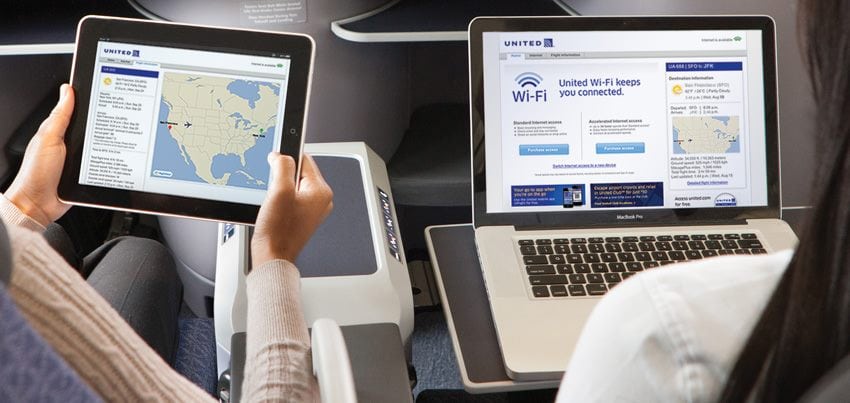Skift Take
Any adoption of the proposal that the FCC will consider is by no means assured since the Satellite Industry Association has powerful backers with much clout in Washington.
Satellite-based Wi-Fi services such as Row44 and Panasonic Avionics, which power on-board wireless networks for Southwest and United, respectively, have a clear competitive advantage over air-to-ground networks because the satellite systems offer much greater capacity for travelers trying to stream video or access bulky emails.
But the Federal Communication Commission’s decision last week to begin a public comment period over a Qualcomm proposal to vastly expand the bandwidth available for air-to-ground (ATG) networks to 500 MHz has touched off a battle between ATG and satellite Wi-Fi providers because implementation would close the capacity gap between the two on domestic flights.
The FCC has thus set off a conflict between air-to-ground and satellite-based Wi-Fi providers in the U.S. over who will control the still-expanding market for onboard Wi-Fi within the U.S.
“The inherent advantages of ATG are that it’s light weight, low cost, it has low latency, and can be installed overnight,” says one industry observer. “Its disadvantage is it is limited by how much government spectrum is available. This proposal obviously changes that.”
The Satellite Industry Association (SIA), a powerful group that represents companies including Boeing, DirecTV, Echostar, Intelsat, and LightSquared, among others, is already on record opposing the proposal that would extend ATG broadband service as a ku-band network secondary service, citing the fear that it would interfere with existing satellite services. The SIA stated:
“SIA has filed with the Commission detailed technical analyses that demonstrate that the proposed air-ground service would cause interference into the satellite services that are primary in that band and are relied upon by media, enterprise, public safety and U.S. military customers for essential services.
“These Ku-band satellite services represent extraordinary technical innovation and billions of dollars of investment in both spacecraft and satellite ground systems, generating more than $1 billion in North American revenue annually.”
The FCC says the expanded ATG service would not interfere with fixed-satellite service, but this is something that will undoubtedly be debated during a 45-day comment period.
The spectrum that would be made available would likely be auctioned off in two 250-MHz licenses.
A company such as Gogo, which offers ATG service and is also developing satellite capabilities, would likely vie for one of the licenses at auction. Gogo currently provides ATG service to American Airlines, Air Canada, AirTran Airways, Alaska Airlines, Delta Air Lines, Frontier Airlines, United Airlines, US Airways, and Virgin America.
The debate will be of a high-stakes nature, although it won’t impact international, over-water flights where satellite-based Wi-Fi services are required.
Here’s the FCC notice of proposed rulemaking on expanded capacity for ATG mobile broadband networks:
The Daily Newsletter
Our daily coverage of the global travel industry. Written by editors and analysts from across Skift’s brands.
Have a confidential tip for Skift? Get in touch
